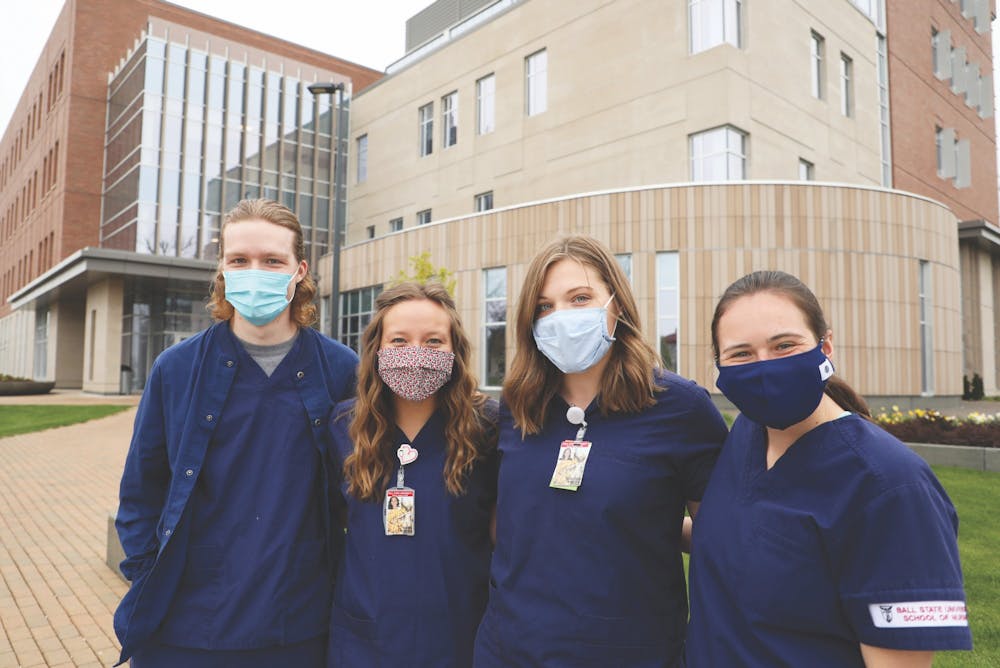After three semesters of attending classes and completing clinicals during the COVID-19 pandemic, senior nursing majors are ready to enter the workforce and put their skills to the test.
Lauren Hamil is relocating to Alabama to be with her family after graduation and said she is in the interview process for two different nursing positions — one as an emergency room (ER) nurse and another as a pediatric nurse.
When considering what her life will look like working in an ER during the pandemic, Hamil said she doesn’t anticipate things changing in the near future.
“I think the healthcare industry will continue seeing the effects of COVID, even when the public returns to normal,” Hamil said.
Hamil said she thinks masks will still be in effect in hospitals for at least another year but doesn’t know what working in a hospital will look like after that.
“I know that employers are looking out for the safety of their employees, so I trust that my future employer will help keep me safe so I can take care of my patients effectively,” Hamil said.
She added that the pandemic has not changed whether she wants to be a nurse because, at the end of the day, being a nurse is about helping people and dealing with various diseases. She also believes members of her graduating class are “very aware” of the environment they are stepping into.
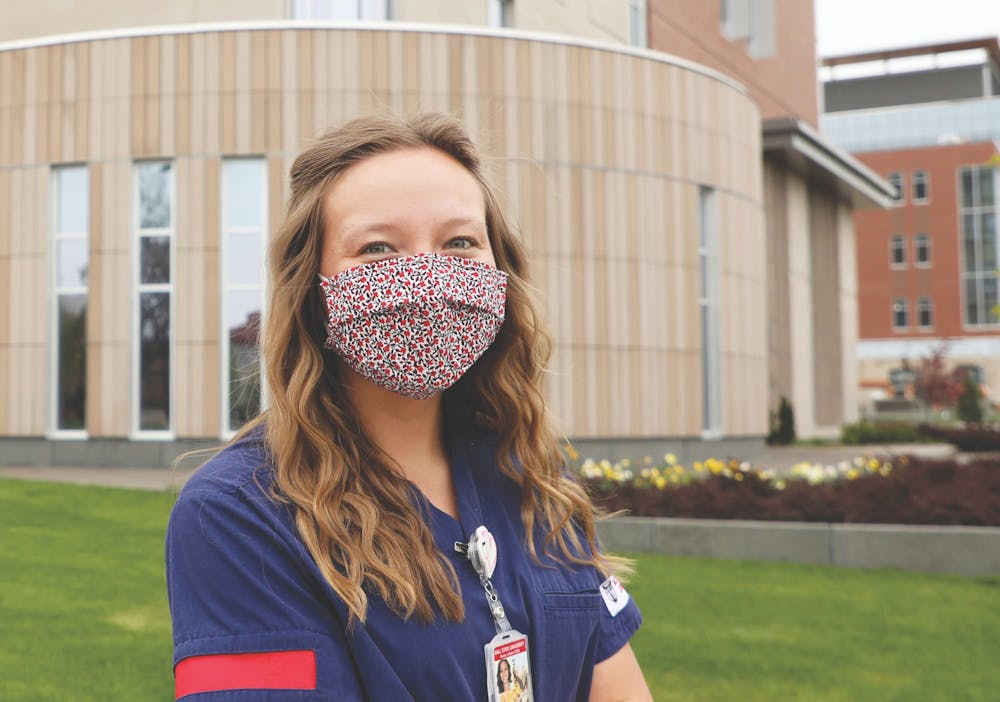
Senior nursing major Lauren Hamil poses for a photo outside of the Health Professions Building. Rylan Capper, DN
“I feel like the Ball State [nursing] program does a very good job on preparing us to be successful in our career,” Hamil said. “They have taught us how to collaborate with others and how to ask questions.”
Because of Ball State’s program, Hamil said, she doesn’t have any fears about entering the field but instead is looking forward to her future in nursing.
“I’m excited for all of it,” she said. “I’m excited to graduate. I’m excited to begin a career in something I’ve been studying for four years and just be out there and help people.”
Like Hamil, Gabe Cochard is graduating in May. After graduation, Cochard will work at University Hospital in Indianapolis in the medical intensive care unit (ICU) and said he thinks his experience after college will be “interesting.”
“I think we’re going into a field where [nurses are] definitely more appreciated now than we were at one point,” he said. “It’s also just weird because we started out school in this world where everything seemed normal, and, now, we’re going into a world where things are so different.”
Cochard also said he believes nurses will have more respect after the pandemic because people have seen health professionals “risking their lives to save other people.”
He said he always knew something like the COVID-19 pandemic could happen, so it didn’t make him want to enter the field any less.
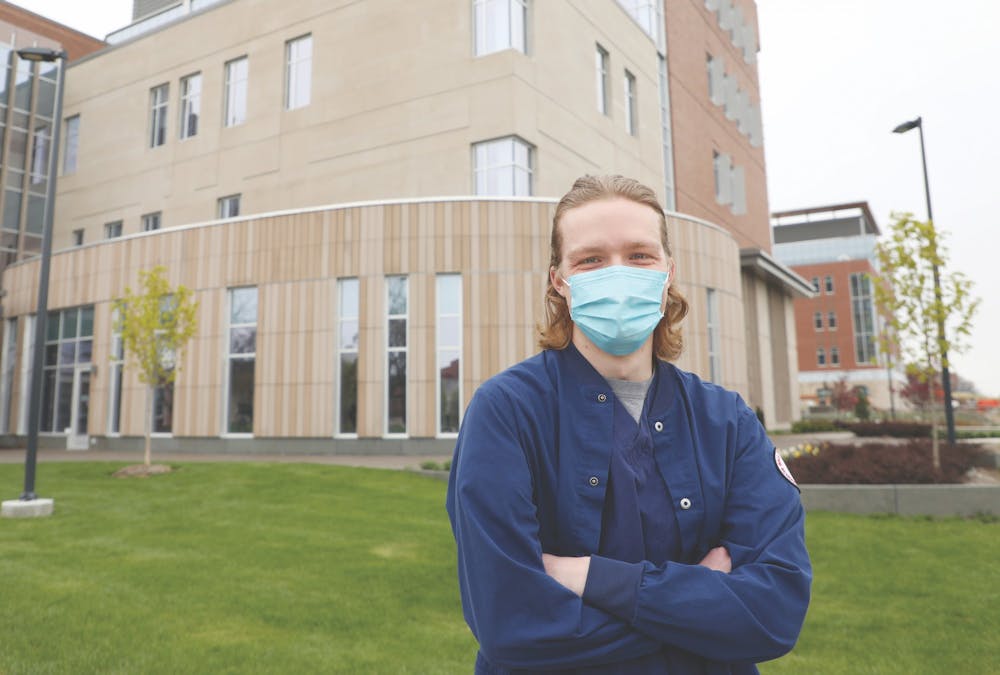
Senior nursing major Gabriel Cochard poses for a photo outside of the Health Professions Building. Rylan Capper, DN
“Honestly, it just made me want to be in health care more because I was able to help make a difference in the lives of people who have gotten sick or have been changed because of this pandemic,” he said.
Cochard said he has no fears entering the field after graduation because he trusts the vaccine will protect him and his family. He believes, once the entire population is vaccinated, life will go back to normal.
“There’s no reason to fear the healthcare field,” Cochard said. “I’m sure there’s going to be new disease outbreaks that are going to happen, and, honestly, that’s just a driving force because I’ll be able to help make a difference and help be the change that I want to be.”
Equipping herself to handle challenges is also a motivating factor for Emily Bastian, who will work at Methodist Hospital in Indianapolis as a registered nurse after graduating in May. Bastian said she is excited to enter the healthcare field during the pandemic.
“There’s a lot of new opportunities that we kind of have to come across, and that revolutionizes our healthcare system, so I’m definitely looking forward to it,” she said. “It’s definitely an adventure, and I’m ready to take it on.”
Bastian also said she believes Ball State faculty has done "a great job" preparing her to be a nurse.
“We have amazing professors who are more than willing to sit down with you, and talk things through and prepare you for real-life examples,” Bastian said.
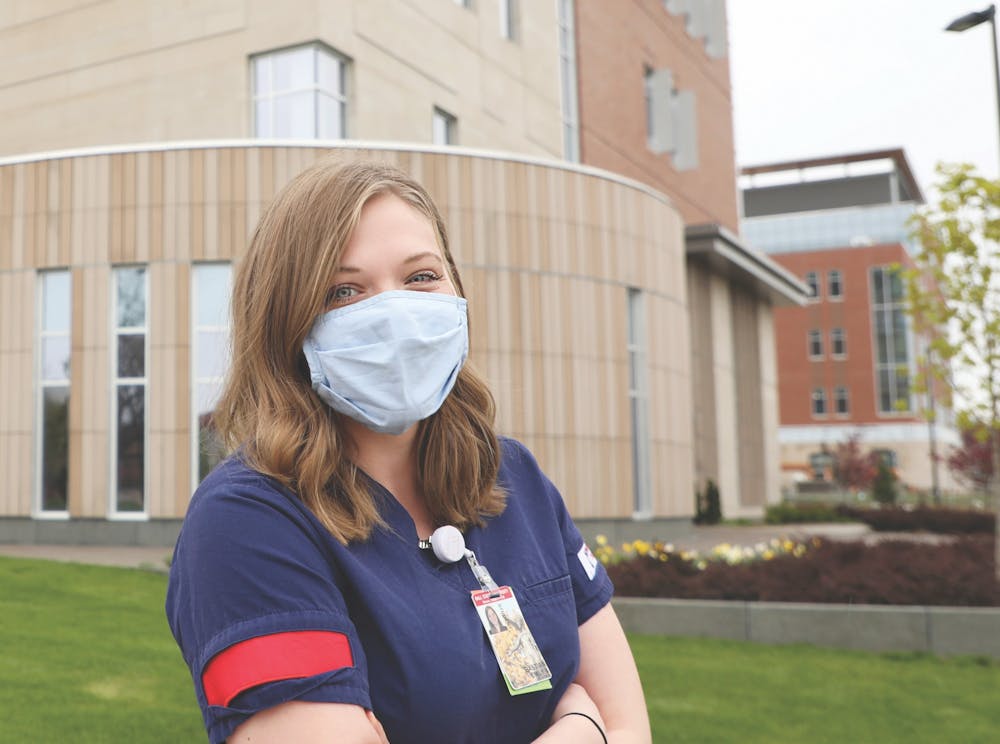
Senior nursing major Emily Bastian poses for a photo outside of the Health Professions Building. Rylan Capper, DN
She said she has always had a “strong drive” toward nursing, and the pandemic made her want to enter the field more than she had before.
“It’s all about helping people, and that’s what I want to continue to do,” Bastian said. “Even though the pandemic puts a damper on things, it definitely gives me more of a reason to go help people.”
Kaitlyn Hansen is another senior nursing student who is ready to graduate and help people in her field. Hansen is moving back to Illinois after graduation and will work at a summer camp while studying for her board exam, she said, and will hopefully work in an ER or ICU afterward.
Hansen said she is more excited than fearful about entering the nursing field after graduation mainly because she feels her classes and clinicals have prepared her well.
“With classes all going online, the only in-person thing that we had as nursing students were our clinicals,” Hansen said. “We would show up and only see our classmates during clinicals once or twice a week, and that was kind of all the social interaction we got.”
Hansen said she wasn’t treating COVID-19 patients until her last semester in clinicals. She had to sign a waiver saying she was allowed to treat those patients, and, if she contracted COVID-19, she could not hold the university liable.
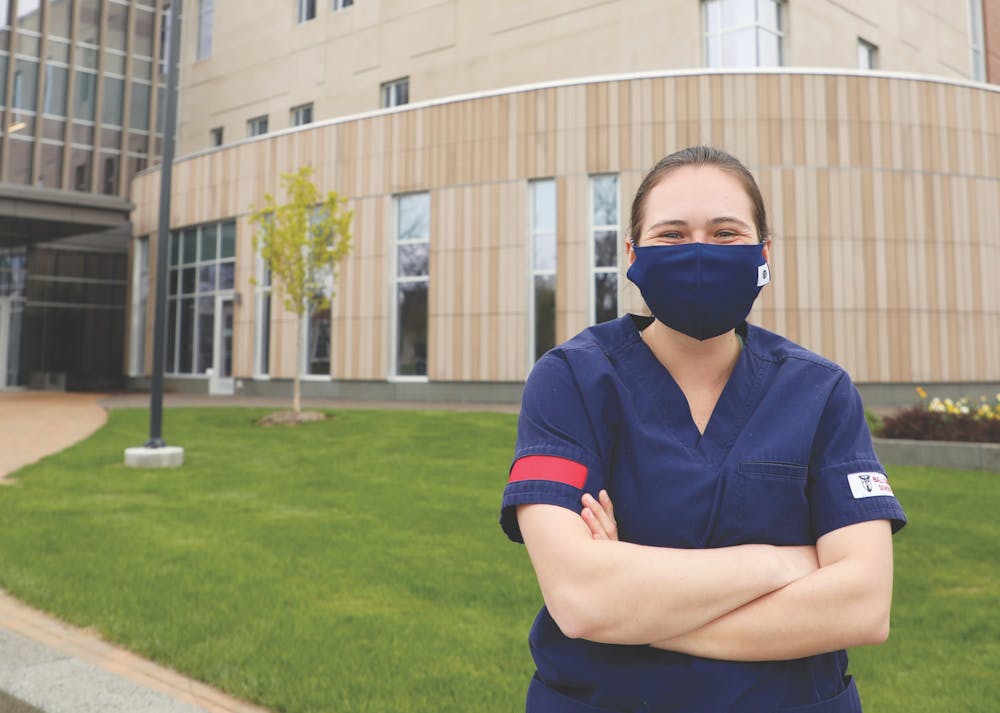
Senior nursing major Kaitlyn Hansen poses for a photo outside of the Health Professions Building. Rylan Capper, DN
“I’m thankful that we were still able to get into the hospital, but it definitely was more limited with what we could and couldn’t do,” Hansen said.
The pandemic didn’t make Hansen question whether she wanted to go into the nursing field or not because she “deals with sick people all the time.” She believes she was trained and taught to help those people.
“I think it would have been different if I had graduated last year,” Hansen said. “We have done more research, and we understand more about the virus so that we can better handle it now.”
Contact Maya Wilkins with comments at mrwilkins@bsu.edu or on Twitter @mayawilkinss.

